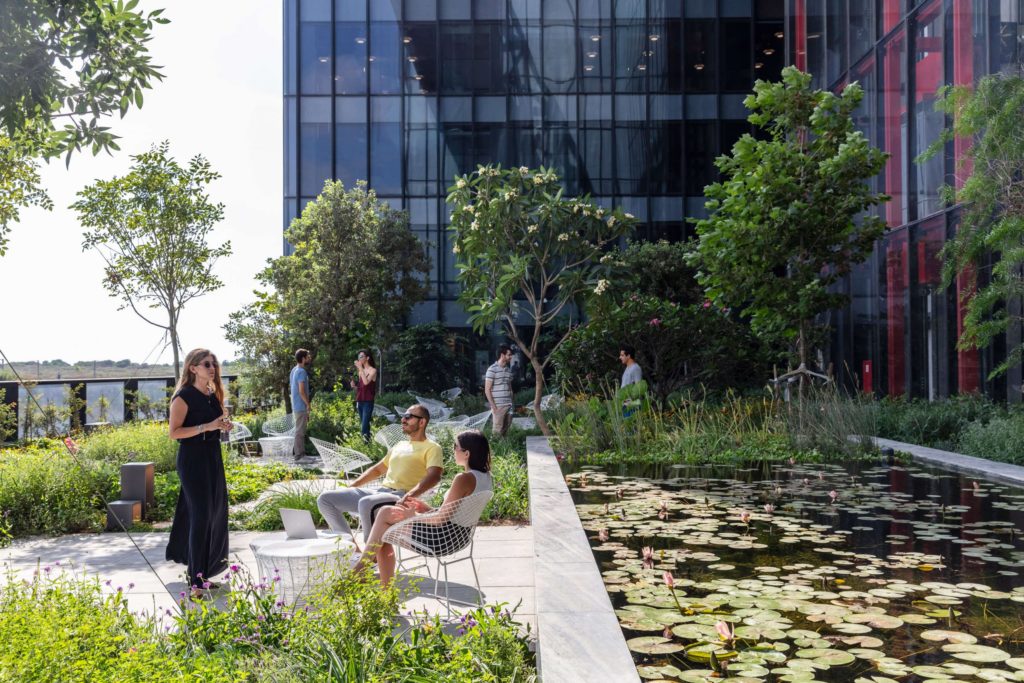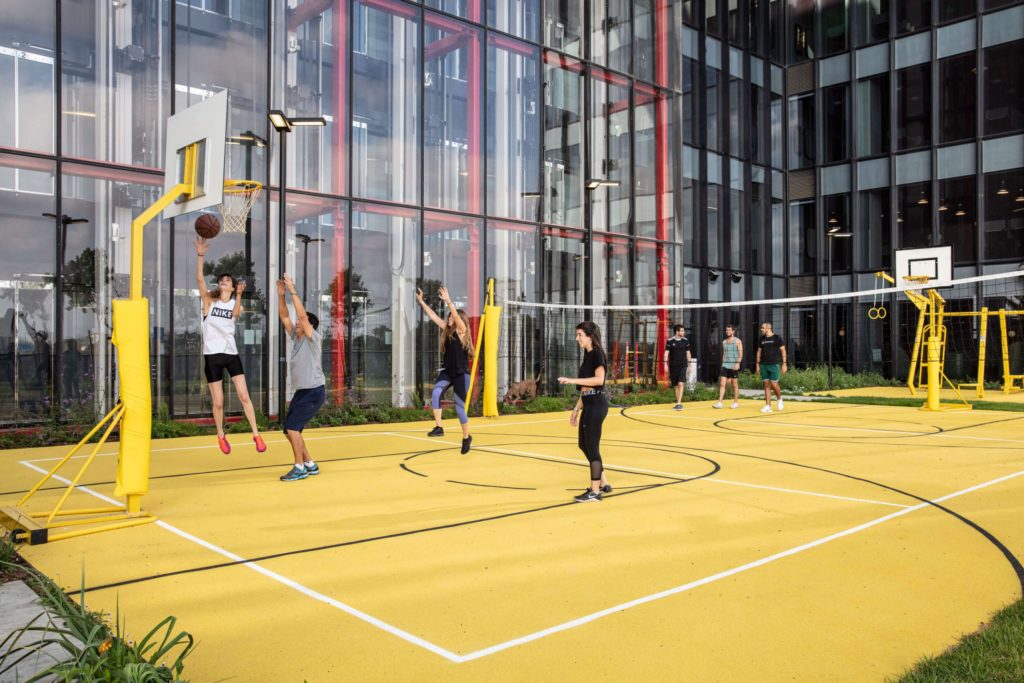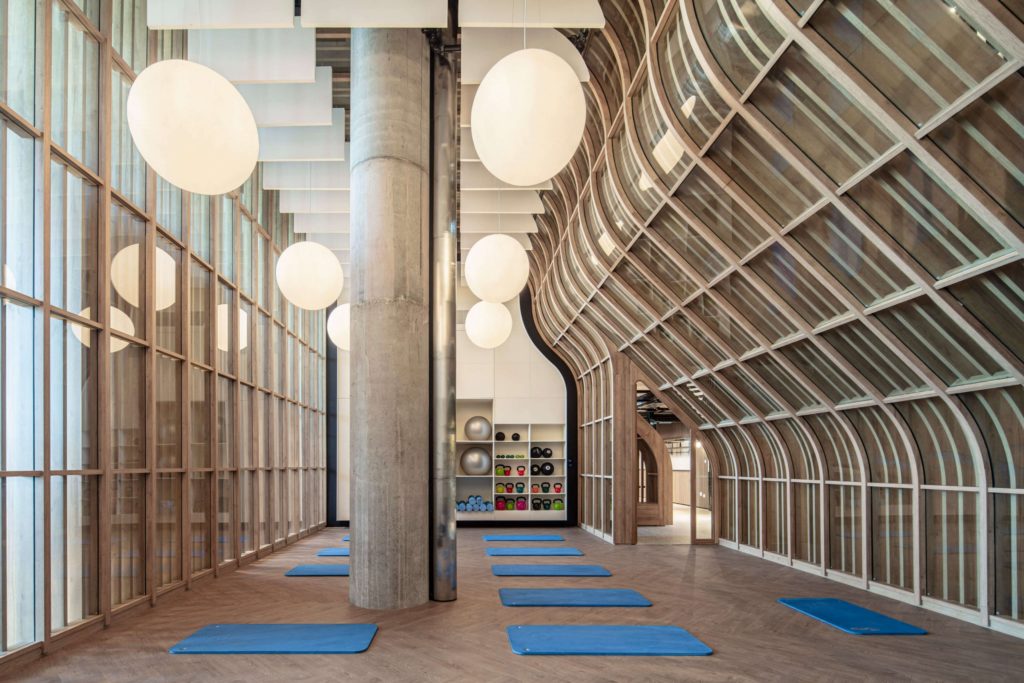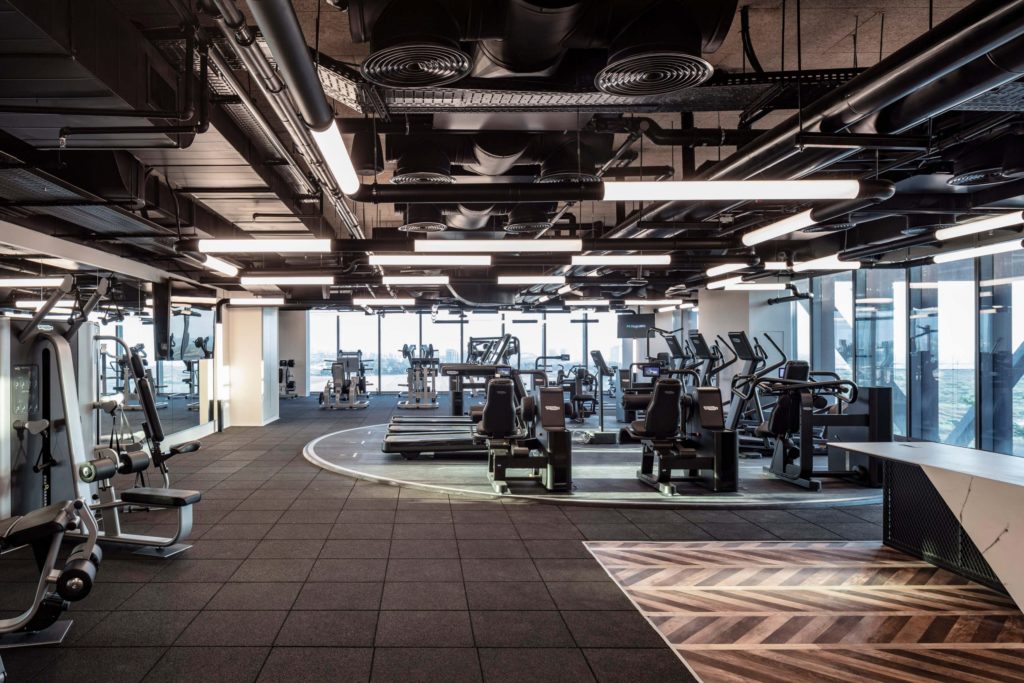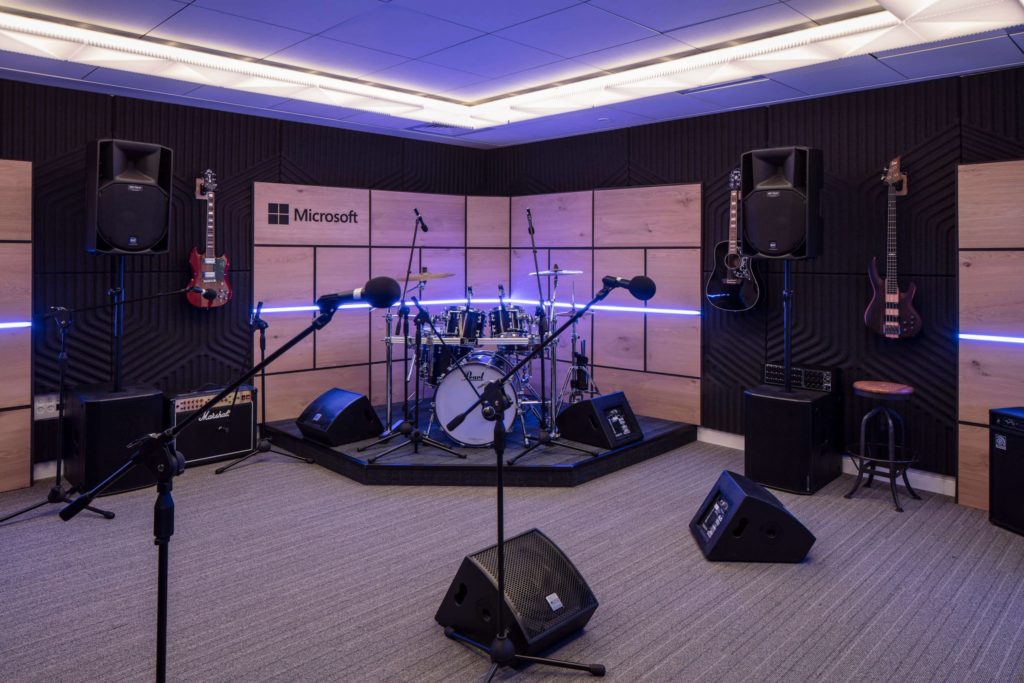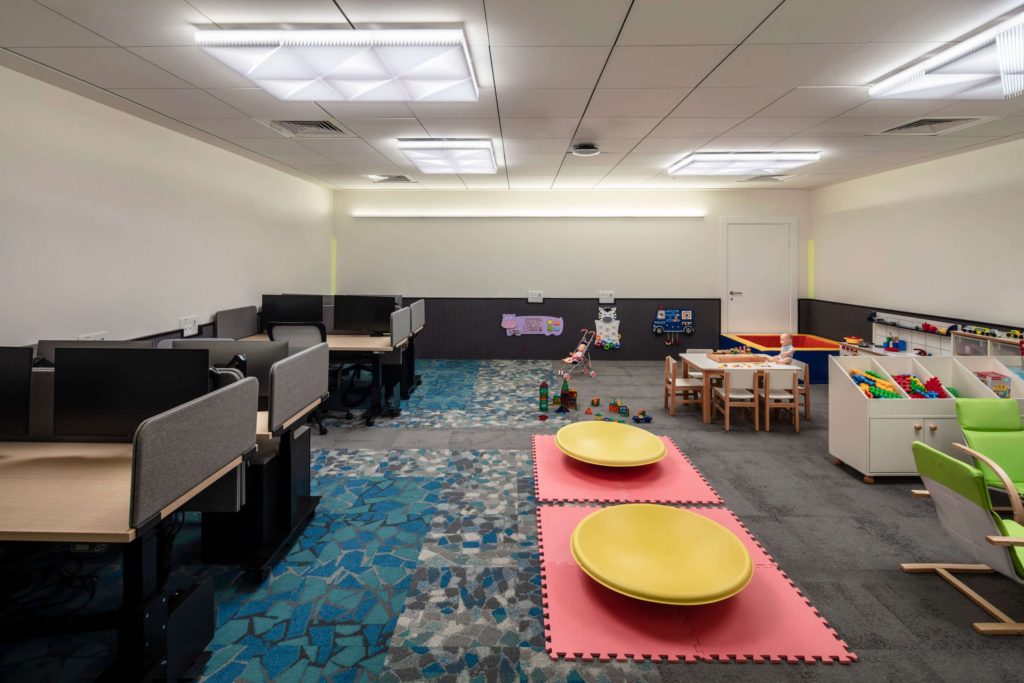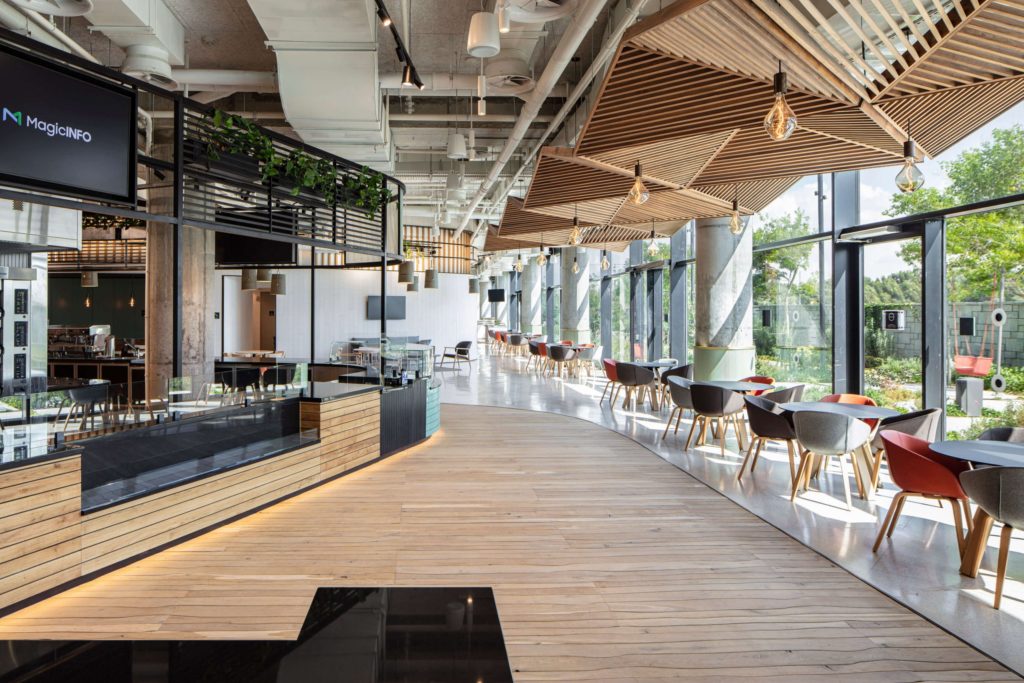
How Microsoft designed a campus with the evolution of work in mind
It goes without saying that the pandemic has upended work life in 2020. But rather than seeing this period of compulsory remote work as a one-off byproduct of COVID-19, it can be understood as an inflection point in a long-coming technology-driven reckoning on the nature of office work.
Will employees be looking for more ways to connect in person after the pandemic? How about in a decade or 20 years, for that matter? It might seem an odd moment to celebrate the opening of Microsoft’s new state-of-the-art 46,000 square meter campus in Herzliya, Israel, except for that fact that questions around different and creative ways of working were already deliberated when the campus was designed – four years ago.
“This was a once-in-a-lifetime project,” said Tel Aviv-based Lead Architect Vered Gindi of Vered Gindi Architects, who designed the campus as a joint venture with the Israeli and French firm, GSArch. “We started with fundamental questions like ‘Why does a person actually want to come into an office?’ and ‘Why do they need an office at all?’ We aimed to create a space that would continue to be relevant for decades; no matter what comes next.”
Microsoft Israel and the design team landed on a few guiding principles for the development of the new campus. The first principle was to lessen the campus’ long-term impact on the environment, making it as sustainable as possible. The second was to aspire to the dynamic creativity of urban environments over the traditional grids or open-floor plans of most office spaces. And the third was to offer a flexible, inclusive workspace that can be endlessly customized to fit employee needs.
A workplace of the future must justify its existence by mitigating its impact on the environment. Michal Braverman-Blumenstyk, CVP and general manager of Microsoft Israel R&D, said, “Microsoft’s sustainability value has been incorporated into every aspect of the campus, and a great deal of thought was put into every detail, from convenient transportation, through accessibility and integration of diverse populations, to wellbeing in food, fitness and leisure.”
In a location that registers temperatures around 27 C (80 F) for some seven months out of the year with almost no precipitation, there is also a concerted effort to reduce energy and water consumption. The Herzliya campus is the first LEED (Leadership in Energy and Environmental Design) V4 Building Design and Construction Gold certified building in Israel, making it one of the most sustainable building in the country.
The campus uses atmospheric generators that pull moisture from the air to produce drinking water. The system will create some 237,000 liters of fresh water per year. The air filtration system not only cleans indoor air, including inside of the elevators, but it also collects and repurposes condensed water. Rosenbaum said, “All of the air conditioning condensate water is reused for irrigation and to reduce energy needs for cooling. This is an additional estimated saving of over 3 million liters of water per year.”
The campus has 800 square meters of photovoltaic cells, which will provide 100% of the power needed to run the campus dining facilities and the exterior lighting. The buildings are also equipped with an advanced double-skin curtain wall with integrated automatic interior blinds, which both help deflect sunlight and keep the buildings from overheating in the first place.
As for the decision to model the campus off of an urban environment, Gindi explained, “A city is a place of intersection, it provides private residential moments alongside frequent public moments. You are surrounded by people, activities and culture. You are part of something bigger than yourself. And, in this case, you are not just going to work; you are experiencing a lifestyle.”
The “city” is divided into four hubs: Downtown, the industrial zone; Midtown, the eclectic, playful mainstream area; The Garden, the green outdoor level; and Uptown, which is made to feel like a boutique hotel. “Boulevards” tie together the different zones.
This innovative design helps to bind together the dynamic roles within the campus which range from sales and marketing to the Israel Development Center, Microsoft’s first R&D site outside the United States, established in 1991 and now a major force in cybersecurity and AI.

The Herzliya campus utilizes Microsoft’s existing yet nascent concept of team-based “neighborhoods” that are big enough to offer public interaction but small enough to give privacy when needed. Each neighborhood in Herzliya is also equipped with its own “zone room” (also known as “code room”) and every two neighborhoods share a four-person “focus room” that is only available to those teams.
The campus is meant to be part of employees’ social and cultural life. It contains all of the elements of a daily routine, from a café with baristas who can make your coffee just like you desire to a yoga room, dog playground, sports facilities, community gardens and a variety of indoor and outdoor food pavilions.
“This variety allows people to design a routine that works best for them,” said Oren Yerushalmi Rosenbaum, senior portfolio manager for Microsoft Real Estate & Facilities in Israel & Serbia. “This is what it is all about: flexibility and choice. And that extends to equal opportunity for how people access and use their work spaces.”
Inclusivity is not just a concept but is put into practice through hiring. Numerous people who operate the campus are deaf, blind or have mobility or mental disabilities. Upon arrival at the campus, visitors are greeted at sit and stand arrival desks in the lobby, offering abundant options to receive service.
There is Braille throughout the campus, from welcoming pamphlets to descriptions of all artwork from local artists that adorns the public spaces to a tactile floor that supports people with blindness to navigate the buildings. There is also an app to assist those with mobility challenges to use the elevators.
The campus features accessible parking spaces, automatic doors, gender-inclusive bathroom facilities, as well as special audio systems for those with hearing impairment. Among the features that can be height-adjusted for access are the kitchenettes, touch screens for campus directions, work surfaces and sitting areas.
“While the campus is raising the bar for accessibility in Israel,” Rosenbaum said, “the goal was to think beyond our borders and raise the diversity and inclusion bar globally.”
“The campus brings a new experience to all of Microsoft’s employees in Israel, and I’m happy for this personal and professional union,” said Ronit Atad, general manager, Microsoft Israel. “It will empower us and improve our service to our customers and partners.”

Operational flexibility is of the upmost importance. Employees have autonomy over how they work. Desks are on rolling castors and have over 2 meters of cables, so they can be relocated without having to call building services. Rosenbaum said, “Over your 100 square meters, you can have flexibility to organize and personalize your space: put your desks face-to-face or back-to-back, far apart or whatever is right for you. This makes social distancing easier.”
Employees can always find a change of scenery without having to leave the building. All areas offer window views. Acoustic partitions can be added as necessary and shelving systems between groups can be removed so that two teams can combine into one or divide into two sub-teams. This is called the “flexible grid.”
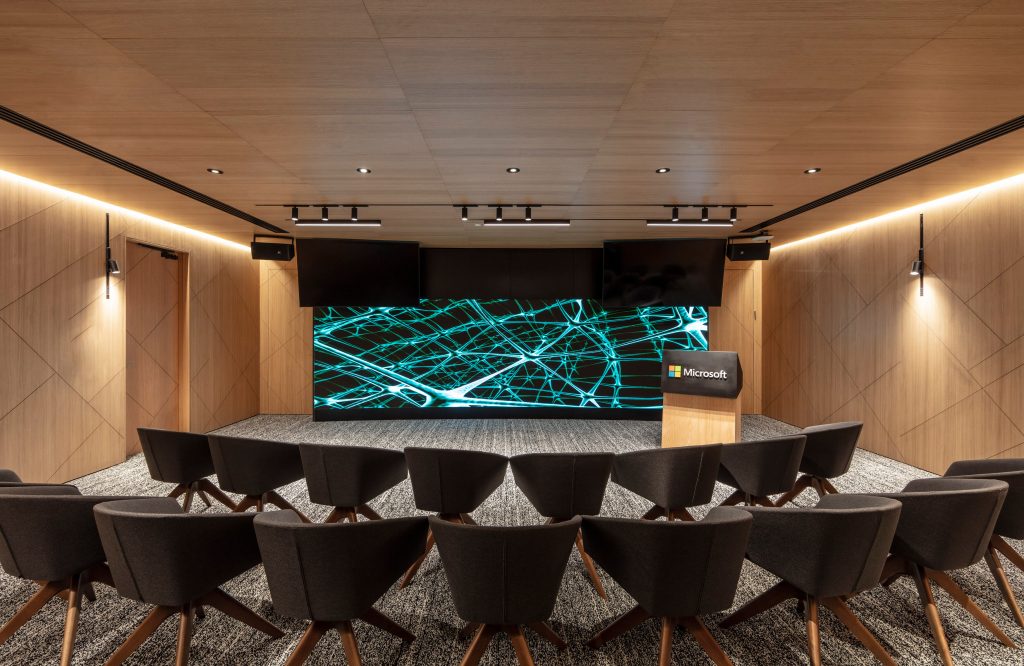
There are no traditional auditoriums. Instead, there are multipurpose rooms that can hold different sized events or trainings. Many of these rooms are also on the flexible grid and can be reorganized, split and merged to fit the desires of meeting organizers.
“We want to support everyone to have a better, more efficient and more vibrant work life,” said Rosenbaum. “We also have prayer rooms, playrooms and space to shoot hoops both inside and outside the building.”
With all of these approaches, Microsoft aimed to build a campus that is relevant both now and decades into the future. COVID-19 is giving the campus a stress test sooner than expected, but its design has prepared it not only for a pandemic but for a much longer-term changing nature of work.
Coming out of the most recent national lockdown, the Israel campus has slowly started to welcome back employees. There is widespread instructional signage for COVID-19 protocols, 2 meters of social distancing, no sharing of keyboards or mice at common desks and the cleaning team disinfects the spaces every night. “But, in reality, it looks pretty much the same as it would have without COVID-19,” said Rosenbaum. “Due to the thought that went into this campus, we were already most of the way to where we needed to be.”
Beyond all of the flexibility and sustainability, Microsoft was adamant that people not view the campus as an office building on the far end of a commute but, instead, a place where they connect with others in a meaningful and positive way, Gindi said. “Our ultimate goal was to create a place that people will actually miss when they’re not there.”


